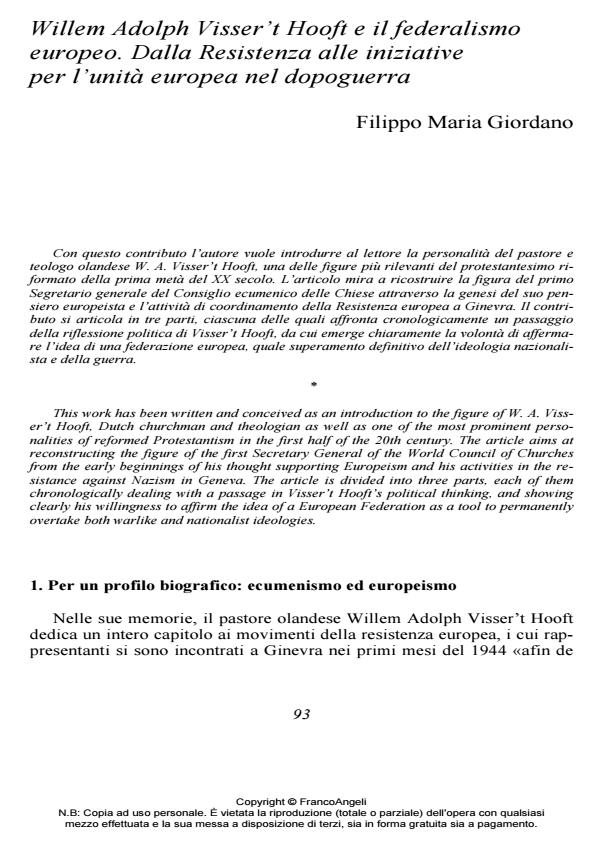Willem Adolph Visser’t Hooft e il federalismo europeo. Dalla Resistenza alle iniziative per l’unità europea nel dopoguerra
Journal title CITTADINANZA EUROPEA (LA)
Author/s Filippo Maria Giordano
Publishing Year 2011 Issue 2011/2
Language Italian Pages 18 P. 93-110 File size 108 KB
DOI 10.3280/CEU2011-002005
DOI is like a bar code for intellectual property: to have more infomation
click here
Below, you can see the article first page
If you want to buy this article in PDF format, you can do it, following the instructions to buy download credits

FrancoAngeli is member of Publishers International Linking Association, Inc (PILA), a not-for-profit association which run the CrossRef service enabling links to and from online scholarly content.
With the entry into force of the Treaty of Lisbon, the Charter of Fundamental Rights of the European Union has been given binding value. The European Court of Justice, after that date, has already invoked the provisions of the Charter in over thirty sentences. An evaluation is here made of this first case-law, emphasizing the fact that the Court has in general terms fully exploited the scope of the Union Bill of rights, taking it in some cases as a measure of ‘constitutional’ legitimacy of supranational legal acts. The role of the Charter is looming today as central to the development of a ‘multilevel’ case-law system, inevitably influencing the work of the national courts, well beyond its area of direct application, thus strengthening the substantial dimension of the European citizenship.
Filippo Maria Giordano, Willem Adolph Visser’t Hooft e il federalismo europeo. Dalla Resistenza alle iniziative per l’unità europea nel dopoguerra in "CITTADINANZA EUROPEA (LA)" 2/2011, pp 93-110, DOI: 10.3280/CEU2011-002005